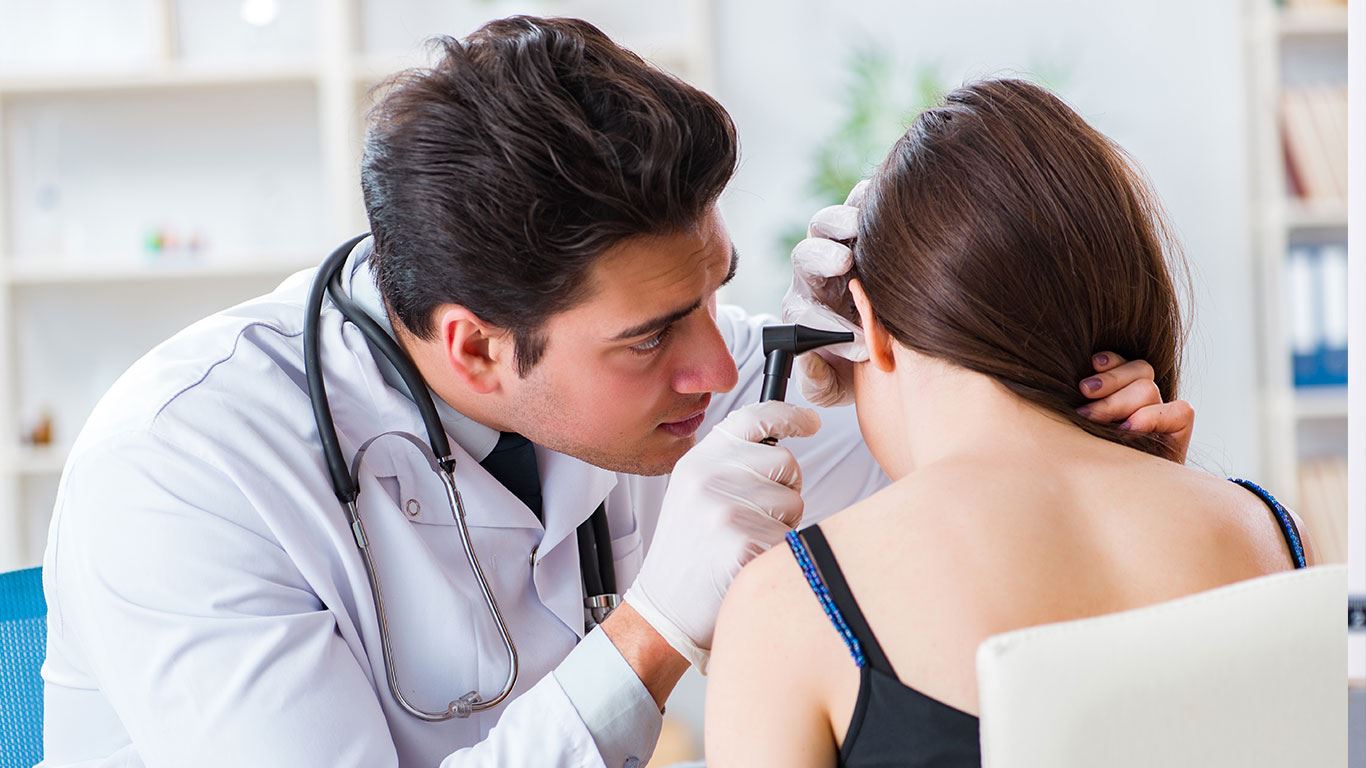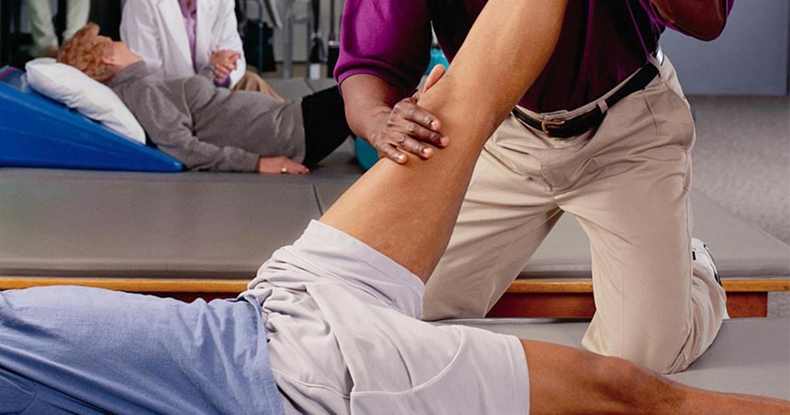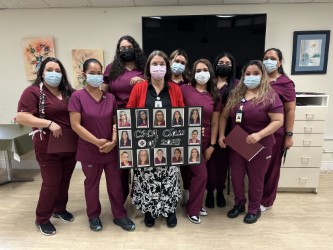11 Easy Ways To Protect Your Hearing and Ear Health
- Category: Health & Wellness, ENT
- Posted On:
- Written By: LVMC

Hearing loss can often be easily prevented by wearing earplugs, exercising regularly, using medications properly, and practicing other ear-healthy behaviors.
An estimated 15% of Americans suffer from some degree of hearing loss, which is most common among adults between the ages of 60 and 69. Taking steps right now to protect your hearing can help you reduce your risk for hearing loss later in life.
Continue reading to gain tips on how to protect your hearing and ear health, and how to contact Lompoc Valley Medical Center if you or your loved one needs specialized ear, nose, and throat treatment.
1. Wear Earplugs Around Loud Noises
Loud noises such as those emitted by power tools, concerts, lawnmowers, firearms, and aircraft can all gradually lead to hearing loss, especially if you are exposed to these noises on a regular basis. Wear earplugs in environments that expose you to loud noises to protect your ears and reduce your risk of hearing loss. Your employer or otolaryngologist (ear, nose, and throat doctor) can recommend the best earplugs for you based on your environment.
2. Turn Down the Volume
Listening to loud music can damage your hearing, especially when using earbuds that sit directly next to your eardrum. Keep the volume turned down when watching television or listening to music in your home or vehicle, and consider using over-the-ear headphones instead of earbuds, which place more distance between your eardrums and noise from portable devices.
3. Give Your Ears a Break
Concerts and clubs may be extremely fun, but they also have the potential to cause temporary or permanent hearing loss. When attending loud events such as these, take frequent breaks by stepping outside or going somewhere to separate yourself from the noise, even if just for five minutes. After the event has ended, try to spend time in a quiet environment for at least one day to allow your ears to rest and recover.
4. Stop Using Cotton Swabs
People have been using cotton swabs for decades to remove earwax buildup from the inside of their ears, but researchers have found that cotton swabs may actually do more harm than good. The National Institutes of Health (NIH) reports that cotton swabs can push earwax deeper into the ear canal to damage the eardrum and ear canal to increase the risk for hearing problems.
Ask your otolaryngologist for recommendations on how to safely remove earwax without causing hearing loss. Your doctor may recommend using a soft, damp tool to clean the opening of your ear canal, or using an approved ear wax removal solution that softens the wax so it can flow more easily out of your ear canal.
5. Keep Your Ears Dry
Swimming and bathing can result in water entering your ear canal, which can be risky for your hearing and ear health if the water contains harmful bacteria or sits in your ear canal for a long period. Tilt your head to the side after bathing or swimming to help excess water drain out of your ears, or use a small, soft towel to soak up excess water in your ears.
If you swim regularly, consider buying earplugs specially designed for swimmers that prevent water from entering your ear canal. Your otolaryngologist may also order custom-fit earplugs that fit snugly and comfortably inside your ears.
6. Use Medications Properly as Directed
Hearing loss is a side effect of many different medications. Drug-induced hearing loss is known as ototoxicity, which may occur in those who use specific drugs in high doses or for a long period. Other factors that contribute to ototoxicity include dehydration, age, and the use of multiple ototoxic drugs at the same time.
Antibiotics, nonsteroidal anti-inflammatory drugs (NSAIDs), chemotherapy drugs, and beta-blockers are some of the many different types of drugs that can cause ototoxicity. If you are using one or more of these medications, take them responsibly and properly as directed. You may also want to ask your doctor about other treatments for your health condition that won’t increase your risk for hearing loss.
7. Stay Physically Active
Exercising regularly promotes good blood flow and circulation, which helps blood and oxygen reach your ears to keep them in optimal health. Make exercise a priority, and aim to be active on most days of the week to protect your hearing and ear health. The best way to stay engaged with an exercise routine is to do activities you truly enjoy. Dance, go for daily walks in your neighborhood, or play outdoor games with your family.
If you enjoy swimming or biking, make sure you wear protective gear such as earplugs or a helmet to maintain your hearing and to protect your ears.
8. Manage and Reduce Stress
Stress increases your body’s production of cortisol and adrenaline, which are stress hormones released as a fight-or-flight response to potential threats. These hormones can temporarily affect your hearing, which is completely normal. However, long-term stress can lead to elevated levels of these hormones, which increases the risk of permanent hearing loss.
Find effective ways to manage and reduce stress, as chronic stress can lead to a large number of health problems in addition to hearing loss. Listen to soothing music, exercise daily, or find other outlets that allow you to release pent-up stress and anxiety. You may also want to focus on eliminating certain stressors from your life that are causing you to experience chronic stress.
9. Know the Warning Signs of Hearing Damage
Ringing in the ears, dizziness, muffled sound in the ears, and loss of balance are common signs of early or temporary hearing damage. If you are in an environment with loud noises and start to experience any signs of hearing loss, remove yourself from the situation as soon as possible to protect your hearing. You may also want to visit your otolaryngologist for a hearing appointment to confirm whether or not you are developing hearing loss.
10. Stop Smoking, and Don’t Start
Smoking reduces your blood oxygen levels and narrows blood vessels all throughout the body, including those in your inner ear. The NIH reports that smoking irritates and blocks the Eustachian tubes, which connect the middle ears to the back of the throat and are responsible for draining fluid and maintaining air pressure in the ears. Smoking also interferes with nerves in the ear to make you more sensitive to loud noises and increase your risk for hearing loss.
If you’re a smoker, take steps to quit as soon as possible to prevent hearing loss. Ask your doctor about effective smoking cessation treatments such as medications and nicotine replacement that can help you quit. If you don’t smoke, don’t start, as nicotine is a habit-forming substance that can lead to a harmful, long-term habit.
11. Visit Your Doctor Regularly For Checkups
Many otolaryngologists recommend getting your hearing tested every three to five years if you are between the ages of 18 and 40. Your doctor may recommend being screened more frequently if you have started to experience some degree of hearing loss or have a medical condition such as an autoimmune disorder or meningitis that may lead to hearing loss. Ask your doctor how often your hearing should be screened based on your medical history and current health status.
Treatments For Hearing Loss
Many cases of hearing loss can be successfully treated by an otolaryngologist. Treatment usually depends on the degree and cause of your hearing loss.
Common treatments for hearing loss include:
- Removal of earwax from the ear canal, in those whose hearing is being affected by earwax blockage. Your doctor may remove earwax using suction tools or liquid solutions that promote the softening and draining of earwax.
- Hearing aids, in those whose hearing is caused by damage to the inner ear. There are a large variety of hearing aid devices available on the market that can be custom-fitted for the best comfort. Your doctor can discuss all your options for hearing aids and help you choose the best type, style, and features.
- Surgery, in those whose hearing loss is caused by abnormalities in the eardrum or ear bones that can be corrected with surgery.
- Cochlear implants, in those with severe hearing loss who do not experience improvements in hearing with conventional hearing aid devices. Cochlear implants work by stimulating auditory nerves in those whose inner ear has damaged parts.
- Treating the underlying health problem. Those who are suffering hearing loss due to the use of certain medications can switch to other medications or start other treatments that don’t cause hearing loss. Patients with underlying health conditions can be treated for those conditions to stop or prevent hearing loss.
Your doctor can talk to you in more detail about hearing loss treatments and help you choose the best course of treatment based on your health situation.
Otolaryngology (Ear, Nose, Throat) Services at Lompoc Valley Medical Center
Lompoc Valley Medical Care offers otolaryngology services for patients who have diseases or illnesses related to the sinuses, larynx, nose, ears, mouth, and throat. Visit our provider page today to make an appointment and to learn more about our many available healthcare services for you and your family.






